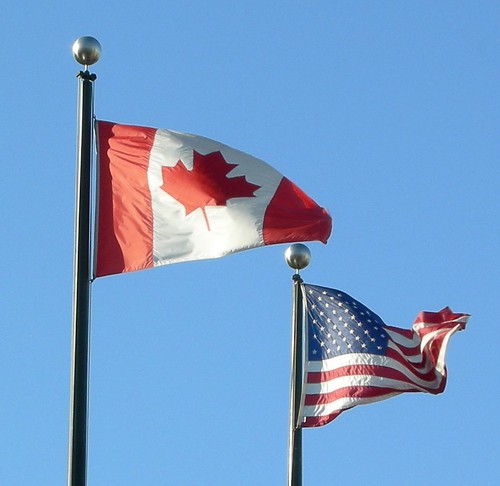 Since fall 2008, economic uncertainty has been top-of-mind. As a result, spending without thinking has become a thing of the past. The sobering reality of the past year has forced consumers to be much more selective about when, where, why and how they travel.
Fast forward to Winter 2009/2010. Although much of the initial economic angst has passed, the shock of last year's blow still lingers. According to a Hotels.ca survey, no destination area, particularly among resorts, has been immune to the recession.
Since fall 2008, economic uncertainty has been top-of-mind. As a result, spending without thinking has become a thing of the past. The sobering reality of the past year has forced consumers to be much more selective about when, where, why and how they travel.
Fast forward to Winter 2009/2010. Although much of the initial economic angst has passed, the shock of last year's blow still lingers. According to a Hotels.ca survey, no destination area, particularly among resorts, has been immune to the recession.
2009/2010 travel trends
Social Media Explosion - Tweet, Tweet, Tweet
There are early adopters and late adopters. Those that have facebook groups and active twitter accounts (at minimum) will benefit--and profit. In the past year, smart hoteliers and airlines have started to use twitter in very saavy ways that not only engage customers but add value. This has turned into higher customer satisfaction and profits. Case in point, many hotels like Fairmont Chateau Whistler asked their followers for input on the ultimate winter package. After the votes were in, the Chateau launched its first Twinter Travel Package.
Last-Minute Booking
Although online travel retailers have always facilitated the last-minute trip for spontaneous travellers, a combination of the economy, the explosion of last-minute booking sites and social acceptability of late booking is making the notion of booking time off work and deciding within a week to a day before leaving for a trip...normal.
Practical Application: Sites like Travelzoo, Last Minute Travel and Kayak's Deals are excellent resources.
Shorter Stays
People would rather travel a little than not at all. And since a two-week getaway is harder to justify, enter the short-haul (ie- 3-5 day) trip. Although families may still favor the week-long getaway, couples and singles are embracing the quicky getaway in droves.
Case in Point: Last fall, Expedia said third-quarter profits fell 4.8% as the slowing economy lead people to shorten their trips.
Price-Driven Consumer
Travel seekers are becoming more and more sensitive to price. This is not rocket science. Because consumers would rather travel a little than not at all, suddenly you have people who favor price over loyalty. For example, in the wake of a last-minute booking, if "consumer A" can't find what they are looking for with Starwood (their preferred hotel group) and see a great package deal featuring an Intercontinental property, they'll book it if the price differential is big enough.
Practical Application: The travel industry's response to this? According to TravelMole.com, airlines and hoteliers are by-passing the GDS (Global Distribution System - used by online and offline agencies) and encouraging customers to gain savings by booking direct with them. Always check with your fave travel companies first, they may have a deal in order to encourage direct bookings.
Closer to Home Weekending
Even though closer to home getaways may not always be cheaper than a last-minute deal, planning to go away locally (within a 4-hour drive) has seen major resurgence in the wake of the economic slowdown. Weekending within one's region seems more attainable to the price-crunched consumer. Hotels and resorts are catching on, offering more and more discounts and packages to lure those who want a little 'local' pampering.
Practical Application: Not including the dates for the 2010 Olympics, Resorts like Whistler Blackcomb are welcoming more and more local guests from BC and Northern WA as the previous 'audience' from Ontario, the UK and California are choosing to stay closer to home.
Gen X Will Travel
Even though Generation X is 11% smaller than Boomers (according to The Age Curve), those born between 1965 and 1984 are the emerging young single, couple and family travellers who have grown up in fairly stable economic times. This means they are careful but still fairly optimistic (likely didn't lose they entire retirement savings in the economic debacle), and willing/excited to still pursue a little R+R. Their web-saavy nature and high expectations dictate they will still travel and find hotel and airline rates their parents may not even know to look for.
Practical Application: This group will use their web skills and optimism to book getaways online. With less health concerns as their aging parents, some will opt for short, safer vacations whereas others will follow Carmen Sandiego's lead and book adventures in far-off lands.
[photo by TheSeafarer]
 Recently, stylist Amanda Ross was named as the W Hotels Fashion Director. Part of the Starwood brand, W Hotels' 36 properties are aimed a stylish traveller who appreciates "modern travel and modern living," making the partnership all the more apropos. Ross has consulted for major designers as well as acted as the stylist for NBC's short-lived Lipstick Jungle. Although her first W project is under wraps, she mentioned she'll be visiting Barcelona this month and also heading to Paris for Fashion Week, and it just so happens a W is opening there next year.
Recently, stylist Amanda Ross was named as the W Hotels Fashion Director. Part of the Starwood brand, W Hotels' 36 properties are aimed a stylish traveller who appreciates "modern travel and modern living," making the partnership all the more apropos. Ross has consulted for major designers as well as acted as the stylist for NBC's short-lived Lipstick Jungle. Although her first W project is under wraps, she mentioned she'll be visiting Barcelona this month and also heading to Paris for Fashion Week, and it just so happens a W is opening there next year. Armani
Armani has collaborated with Emaar Properties to create the "Armani Hotel Dubai" in the world's tallest building: Burj Dubai tower. Armani's hotel is apparently the first in a series of hotels, resorts and residences to be opened around the globe. You can already make reservations for the Dubai hotel which is supposed to open today, but rumor has it, the open will have slight delay.
Armani
Armani has collaborated with Emaar Properties to create the "Armani Hotel Dubai" in the world's tallest building: Burj Dubai tower. Armani's hotel is apparently the first in a series of hotels, resorts and residences to be opened around the globe. You can already make reservations for the Dubai hotel which is supposed to open today, but rumor has it, the open will have slight delay. Now Posh?
Late in January, there was a media frenzy concerning Victoria Beckam's 40.5 million dollar offer to design a hotel in Dubai with fellow fashion icon Karl Lagerfeld. Media reports note the singer-cum-designer was "stunned by the offer," but since then, no reports have surfaced about whether or not the deal will proceed.
Now Posh?
Late in January, there was a media frenzy concerning Victoria Beckam's 40.5 million dollar offer to design a hotel in Dubai with fellow fashion icon Karl Lagerfeld. Media reports note the singer-cum-designer was "stunned by the offer," but since then, no reports have surfaced about whether or not the deal will proceed.




 The famed, mid-February love-fest day that conjures the following reactions: 1-yay, 2-ew, 3-whatever, is approaching.
Regardless of your reaction, this Valentine's Day lands both on a weekend as well as during the Winter Olympics. So if you're not enjoying the weekend off or watching Nordic Combined, Alpine Skiing or Biathlon, here are a few options to spice-up your day:
The famed, mid-February love-fest day that conjures the following reactions: 1-yay, 2-ew, 3-whatever, is approaching.
Regardless of your reaction, this Valentine's Day lands both on a weekend as well as during the Winter Olympics. So if you're not enjoying the weekend off or watching Nordic Combined, Alpine Skiing or Biathlon, here are a few options to spice-up your day:
 Since fall 2008, economic uncertainty has been top-of-mind. As a result, spending without thinking has become a thing of the past. The sobering reality of the past year has forced consumers to be much more selective about when, where, why and how they travel.
Fast forward to Winter 2009/2010. Although much of the initial economic angst has passed, the shock of last year's blow still lingers. According to a
Since fall 2008, economic uncertainty has been top-of-mind. As a result, spending without thinking has become a thing of the past. The sobering reality of the past year has forced consumers to be much more selective about when, where, why and how they travel.
Fast forward to Winter 2009/2010. Although much of the initial economic angst has passed, the shock of last year's blow still lingers. According to a  Think of it as your 2009 adult advent calendar, and each day you get to open a new travel gift. Today is the last day of
Think of it as your 2009 adult advent calendar, and each day you get to open a new travel gift. Today is the last day of